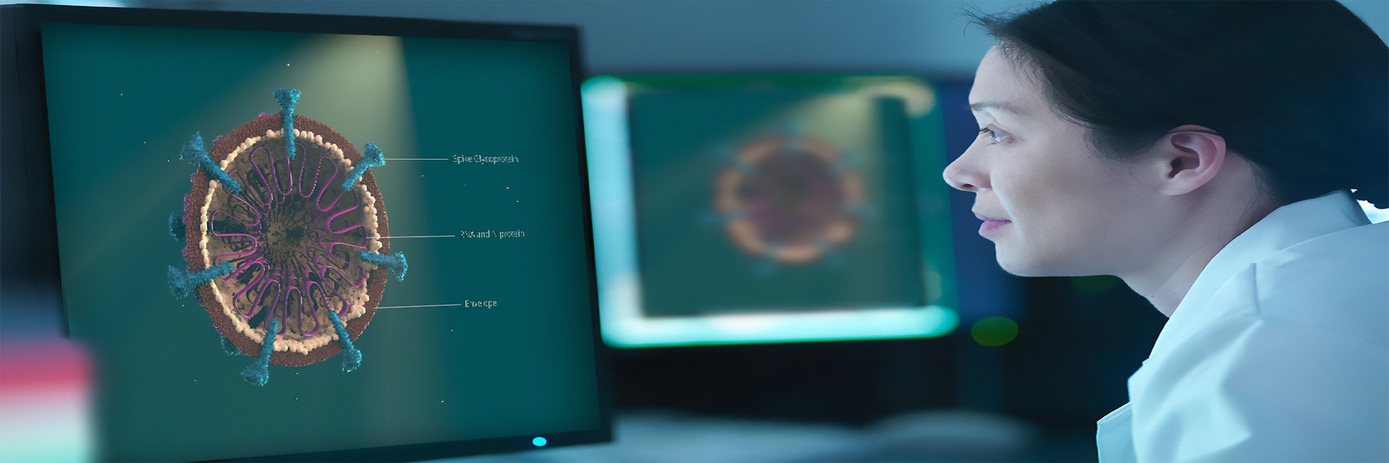When the World Health Organization declared the COVID-19 outbreak a pandemic in March 2020, it was clear that the novel coronavirus posed a significant threat to global health. Little was known about how the virus spread, who the disease affected most, and how to best prevent transmission.
Researchers around the world mobilized resources to gain a better understanding of the virus and determine how best to combat the unfolding health crisis. Sequencing data was shared, basic research initiated, and population-based studies were launched. In less than a year the first COVID-19 vaccine was listed for emergency use by the FDA, making it the quickest vaccine to have ever been developed.
Since then, many nations around the world have taken steps to return to normal social behaviors, relaxing quarantine guidelines and encouraging international travel. Yet the virus still poses a significant threat to global health, and likely will for years to come.
While cases have fallen in many countries, China recently saw a resurgence in new infections, throwing the country back into lockdown. The global burden on healthcare systems remains high, with some patients still suffering from severe infections or post-infection complications. We’ve also experienced the impact of emerging variants such as Delta and Omicron, both of which fueled surges in cases globally and raised many questions about how variants will affect the pandemic’s trajectory.
What therapeutic strategies are being explored?
To address these challenges, researchers have been exploring different therapeutic strategies to complement vaccination efforts and treat those who are currently infected. Most of these approaches aim to target either a viral protein or host cell protein, and there are now over 300 therapeutics for COVID-19 at various phases of development.
Any approach that targets the virus is considered to be a safer option due to a reduced likelihood of off-target effects. But the efficacy of such a virus-targeted therapeutic could be affected if the virus mutates. Another option is to target host cellular proteins, such as angiotensin-converting enzyme 2 (ACE2). However, the challenge here is that ACE2 is widely expressed in multiple organs such as the liver and kidney, which raises concerns about the potential impact on the patient.
While small molecule drug development is often a cheaper option, developing antibodies that bind the virus for inhibition or neutralization is another strategy being explored, and some of the early antibody treatments proved to be highly curative in patients. However, the mechanism of viral escape can make these treatments less effective. To address this, some groups are looking to design a modality that has low affinity to a single variant, but high avidity across multiple viruses, thus inhibiting viral infectivity across mutations.
As mentioned above, the development of a new drug in such a short timeframe is riddled with challenges. A number of trials are ongoing around the world to identify repurposed drugs that could be beneficial to COVID-19 patients. Drug repurposing is a rapid and cost-effective way to identify a new use for an existing drug with a well-established safety profile. For example, the anti-viral remdesivir was the first repurposed drug to gain emergency approval from several countries for the treatment of COVID-19 patients.
Turning potential into success
Fighting the COVID-19 pandemic is a top priority for researchers around the globe and although several treatments for COVID-19 have been authorized for emergency use by the FDA, more are desperately needed. Data continues to be analyzed, collaboration is rife, and high-throughput tools and technologies are enabling drugs to be developed at a much faster pace than ever before. To learn more about the strategies currently being pursued by the research community, read our whitepaper: ‘COVID-19 Therapeutics: Demand, Challenges, and the Future’.
Revvity Inc. does not endorse or make recommendations with respect to research, medication, or treatments. All information presented is for informational purposes only and is not intended as medical advice. For country specific recommendations, please consult your local health care professionals.

































